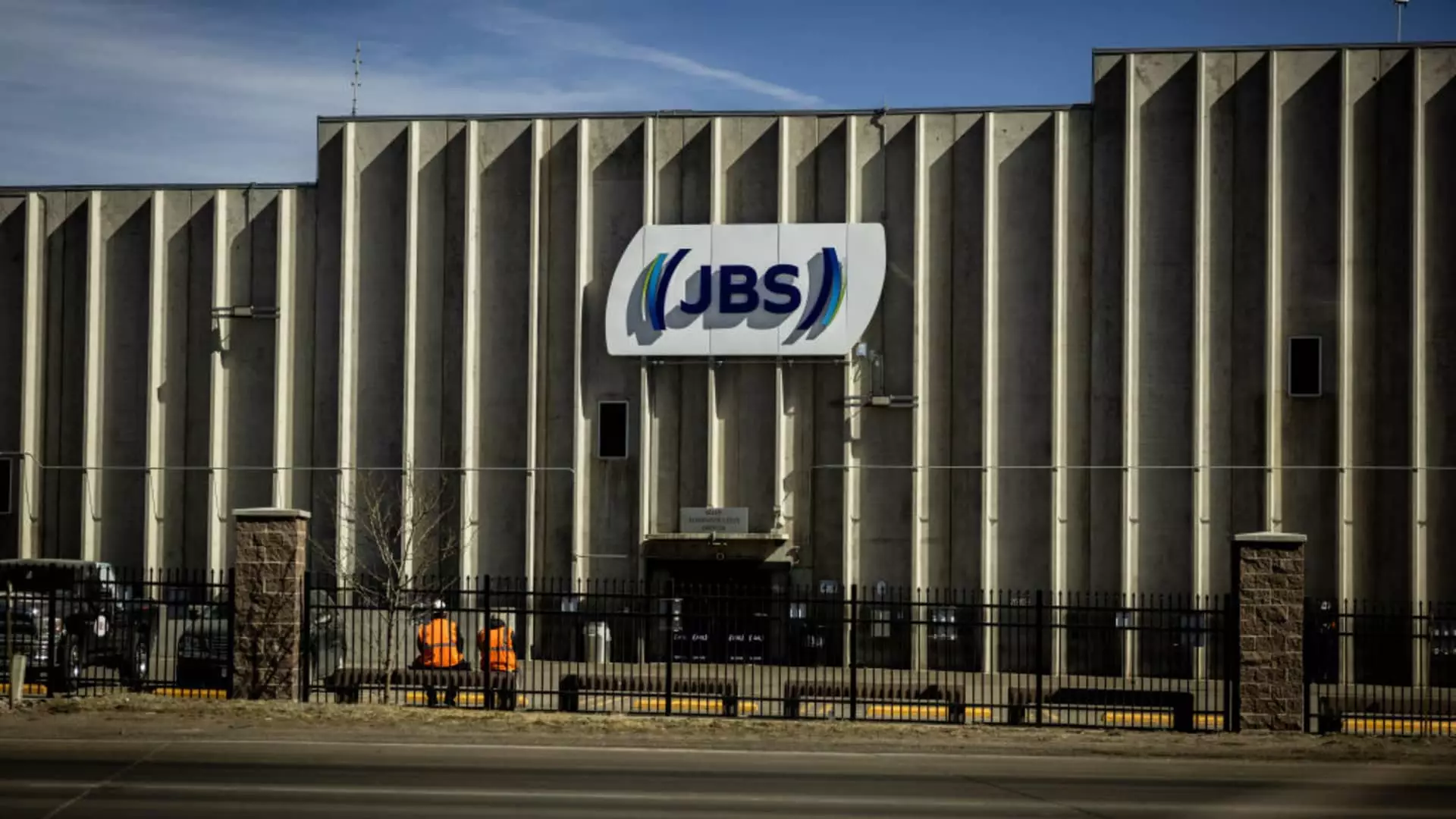The debut of JBS on the New York Stock Exchange (NYSE) sparked a volatile mix of admiration and skepticism, as the formidable Brazilian meat producer launched its U.S. trading at an opening price of $13.65 per share. With a staggering market valuation of approximately $30 billion, JBS not only eclipses its primary American competitor, Tyson Foods, valued at around $19.82 billion, but also raises serious questions about the ethical implications tied to the company’s history. This rapid ascension onto the NYSE, a culmination of a grand 15-year journey marked by numerous setbacks, offers insights not merely into the mechanics of corporate growth but also into a murky sea of corruption allegations that continue to shadow the enterprise.
The Long Journey Towards the U.S. Market
Although JBS has established itself as the world’s largest meatpacking company over the past 70 years, its path to a U.S. public listing has been riddled with turmoil. Initially announced in 2009, its IPO plans faced multiple delays, partly attributed to a series of scandalous revelations that tarnished the company’s reputation. Regulatory investigations into bribery and corruption within its ranks culminated in significant penalties, including a staggering $3.2 billion settlement in 2017 to resolve corruption charges. Such ramifications should not be overlooked; they reflect an environment where corporate governance is often subverted by malfeasance and greed, undermining public trust and accountability.
In the realm of ethics, JBS provides a disquieting case study. The Batistas, the company’s owners, managed to evade jail sentences through cooperation with authorities, which raises ethical questions about the consequences of corporate wrongdoing. While they resurface on the board after being cleared of insider trading, the question remains: should those who have engaged in such high-stakes corruption continue to wield power in their organizations? This dilemma taints the company’s triumph and serves as a cautionary tale for investors who might be swayed by financial performance alone.
The Environmental Impact and Public Backlash
JBS’s journey has also been riddled with environmental controversy. Recent fines for violations related to purchasing cattle allegedly raised on protected land in the Amazon further complicate its corporate image. The juxtaposition between a company flaunting its financial prowess and one entangled in environmental degradation serves as an indictment of capitalism’s excesses. For a company of JBS’s magnitude, the ramifications of its actions extend far beyond profit margins—they reach into the depths of social responsibility and environmental ethics.
Given the global urgency regarding climate change and sustainable practices, JBS’s transgressions fuel public outrage and exacerbate opposition to its market expansion, particularly in the U.S. Public figures and lawmakers across the political landscape express a vehement disdain for the prospects of allowing a company with such a tainted record to thrive in American markets. The perceived collaboration between corporate interests and political entities, especially following sizable donations to political campaigns, raises red flags and fuels cynicism about the legitimacy of the regulatory process.
A Future Clouded by Controversy
The SEC’s approval of JBS’s listing is emblematic of a broader conflict between ethics and economic prosperity. Despite pressing concerns, the financial machinery continues to churn, often placing profits above principles. As consumers increasingly prioritize ethical consumption, the backlash against corporations like JBS reflects a growing demand for accountability and integrity.
In a politically polarized landscape, JBS’s entwinement with power brokers like Donald Trump and its bipartisan donations stir resentment and questions about the company’s motives and influence. While companies must engage in civic responsibilities, the line between participation and manipulation can easily blur, potentially leading to detrimental consequences for both democracy and trust in the free market.
Ultimately, JBS’s aspirations and actions serve as a microcosm of the contemporary tension between unfettered capitalism and the moral imperatives that should guide corporate practices. As it embarks on this new chapter within the U.S. marketplace, the world will be watching, questioning whether financial success will overshadow its troubled past or if ethics will finally hold corporations accountable for their faltering legacies.

